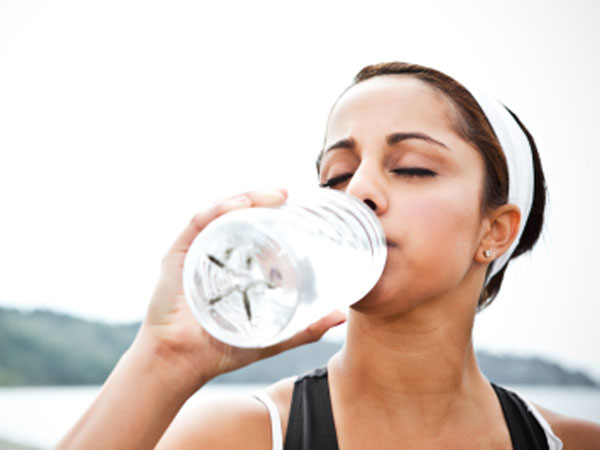Depending on the physical activities and background temperature, dehydration could come rather quickly. Therefore, it is important for us to keep our body properly hydrated. Water level should be adequate inside our tissues and muscles to avoid reduced performance and even cardiovascular overload. Common symptoms of overload are heat exhaustion, heat stroke and partial loss of consciousness. In these situations, even the most skilled athletes are no longer able to function at top performance. On adults, water level is higher than 70 percent and we should keep it a safe range.
Upsetting water balance in our body could have a rather severe consequence. Athletes should be aware of how their body could lose moisture and fluid, so they can be more cognizant of the consequences. Even the simple act of exhaling already releases some amount of moisture from our body. Depending on our physical activity, we could lose up to two cups of water each day through exhaling. Our body also produces sweat and even if we are not sweating, some amount of moisture is released from our skin through evaporation. Another significant way we lose water is by urinating. It’s clear that when we introduce intense physical activities in our lifestyle, the rate of water loss increases.
Sweat occurs as we perform intense physical activity. However, steady loss of water will eventually cause less blood to flow on the skin surface, higher core body temperature and higher heart rate. This could be due to our heart attempting to maintain proper blood flow to muscles and organs. Higher core temperature can translate to mental and physiological distresses due to heat stroke and exhaustion. We should understand the adverse effects of depleted water supply in our body. This should help us to ensure healthy productive physical activities and better performance.
Symptoms of dehydration already start to appear when we lose 2 percent of water in our body. During physical activities, we should make sure that water is replaced frequently. We should consider the weather where the physical activity takes place. It is a bad idea to ignore signs of dehydrations and during an intense match; we could be able to keep on going without drinking due to lack of thirst. Athletes should be proactive if they don’t want become the victim of dehydration. During very intense situation, it is possible for athletes to lose more than 15 glasses of water each day.
However, we should be careful not to drink too much, because anything excessive is always a bad thing. Unabsorbed water would cause discomfort and bloating. Alcoholic drinks and caffeinated beverages are considered diuretics and they can deplete our body of water. Sports drinks are properly formulated for proper absorption and they are considered good alternatives to plain water, especially if we have lost a good deal of electrolytes through perspiration. If the weather is especially warm, we should train moderately and try not to exert ourselves.

